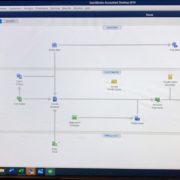What Happens To Your Retirement When You Are Gone?
Retirement accounts provide viable investment vehicles for individuals to have access to necessary funds after they have left the workforce. While most people recognize the rules and restrictions of these accounts during their retirement (starting with the fact that the funds in these accounts typically have not been taxed yet), many don’t have a firm understanding of what happens to their savings upon their death. Knowing what happens to your retirement when you die can help you plan accordingly to best provide for your loved ones in the future.
Some key points to know include:
Beneficiary
The beneficiary of your retirement accounts can be a person, trust, or estate. If your beneficiary is your surviving spouse, they may take the retirement account as their own or as a beneficiary retirement account. Note: Whenever possible, make the beneficiary (beneficiaries) persons and not your estate or trust.
Owner Dies On Or After RMD (Required Minimum Distributions) Date (70 ½)
If the beneficiary is a person, they can take a lump sum or receive an annual payout based upon the longer period of their single life expectancy (based on their age) or on the single life expectancy of the descendant (based upon their age at death). If the beneficiary is an estate or trust, the retirement funds can be taken as a lump sum or an annual payout based upon the single life expectancy of the descendant based upon their age at death.
Owner Dies Before RMD Date (70 ½)
If the beneficiary is a person, they have the option to take a lump sum or receive an annual payout based upon their single life expectancy (based upon their age). If the beneficiary is an estate or trust, the retirement funds must be taken as a distribution within five years of the date of death (recipient may opt to take it all in the fifth year).
Taxes
While most people recognize that retirement savings are pre-tax dollars, many don’t realize that taxes on retirement accounts after death aren’t based on the owner. The taxes on the accounts after the owner’s death actually depend upon the tax bracket of the person, estate, or trust.
ADDITIONAL CONSIDERATIONS:
Charity
If you plan on leaving a portion of your estate to charity, consider making the charity a beneficiary of your retirement account. The funds you’ve allocated to the charity will go directly to the organization and escape taxation.
Roth IRA
If allowable (and you are currently in a lower tax bracket), consider converting pieces of your retirement account annually to a Roth IRA and paying the taxes. After the proper period of time, Roth IRA’s can be inherited on a tax-free basis by the beneficiary.
Get Professional Advice
Most importantly, if your loved one dies and has a retirement account, please contact your trusted tax advisor before doing anything to have all the information you need to protect your best interests.
For more information on protecting your retirement accounts, contact Leone, McDonnell & Roberts to discuss your needs with one of our in-house accountants.











Leave a Reply
Want to join the discussion?Feel free to contribute!